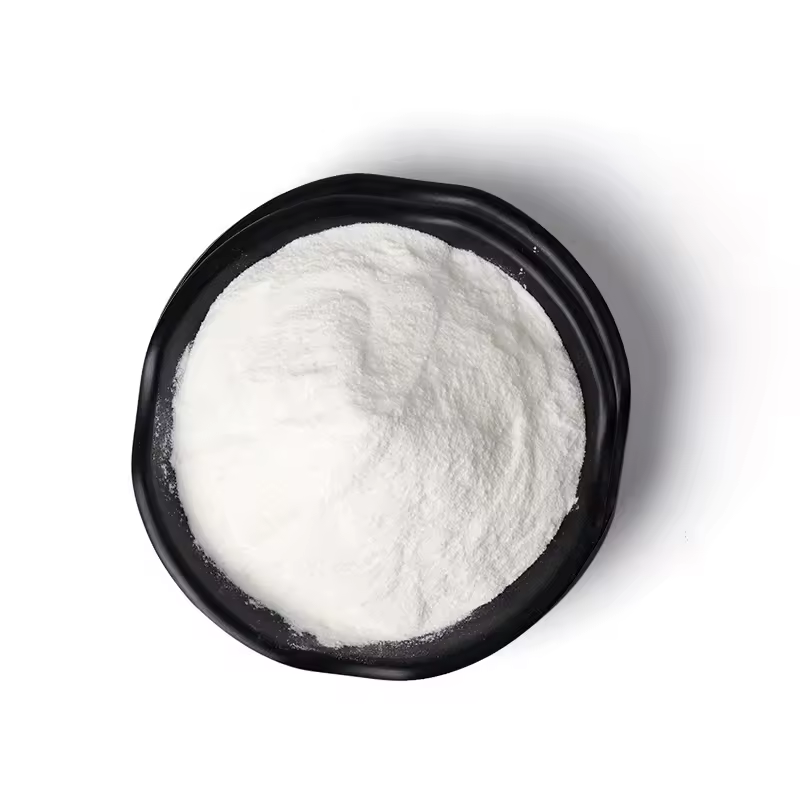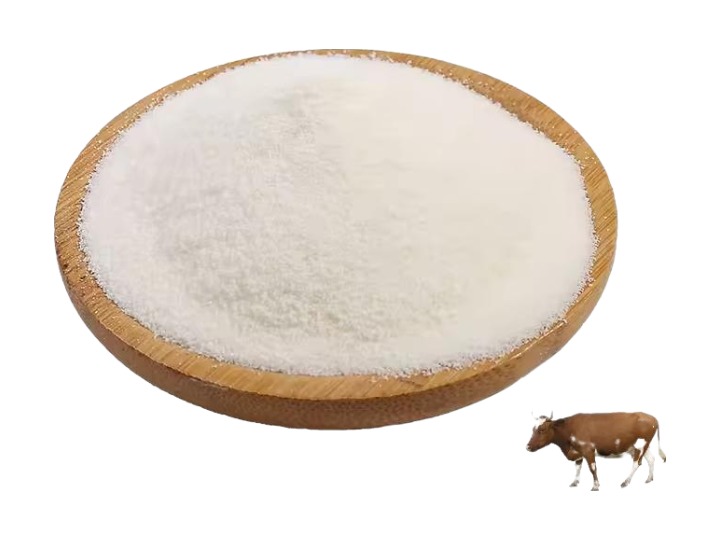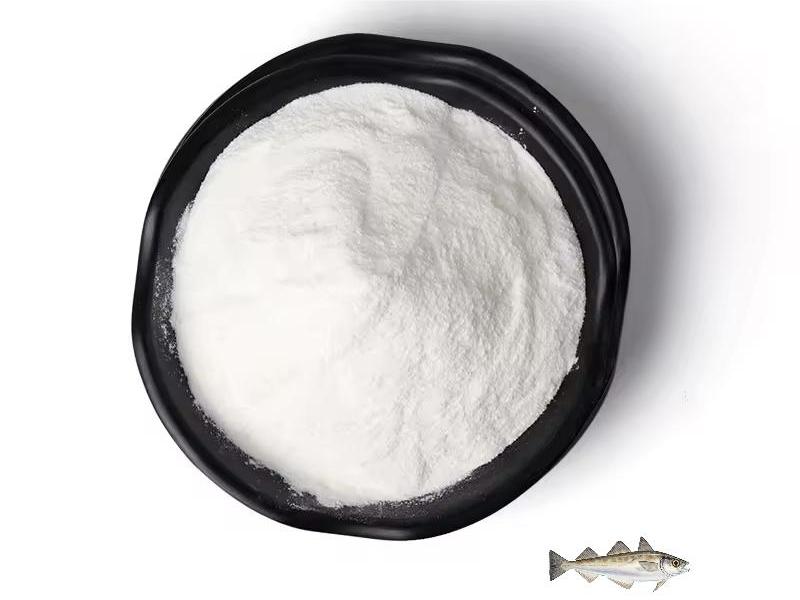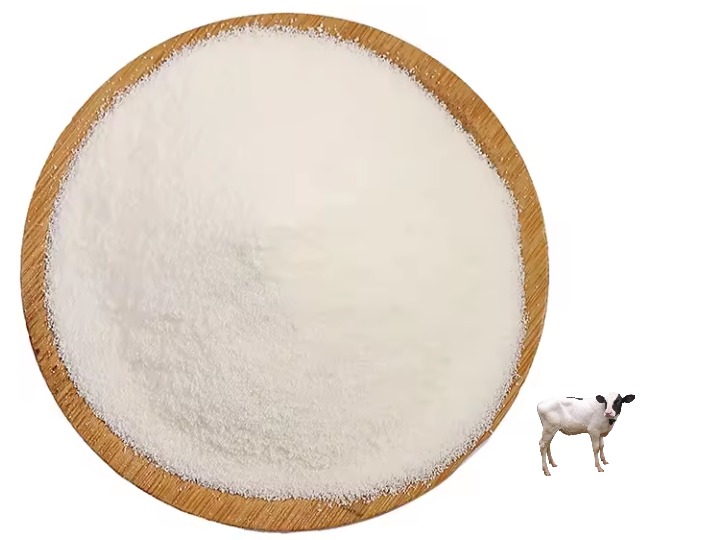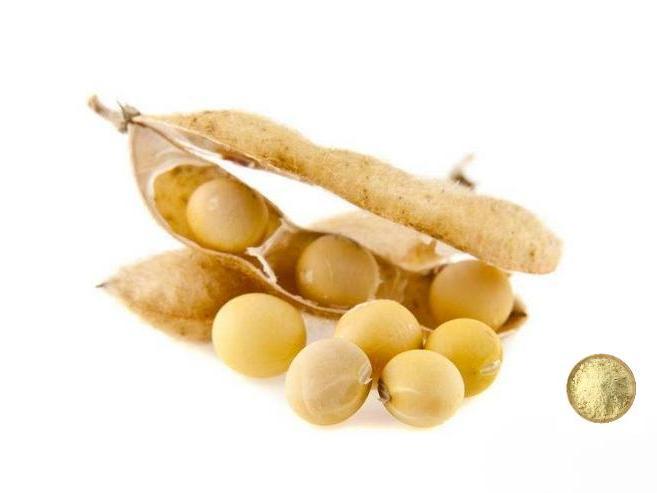Polvo de colágeno de pescado 90%
Fuente: piel de pescado
CAS No. 9064-67-9
Principios activos: proteínas
Especificación :90%
Método de ensayo: determinación de Kjeldahl
Aspecto: polvo blanco o amarill.
Residuos de plaguicidas: cumplir con la norma (CE) n º 396/2005
- descripción
- Hoja de datos
- Certificado de certificado
-
¿Qué es el polvo de colágeno de pescado?
Fish collagen is a protein obtained from fish skin, scales, and bones. It is a natural collagen that has a similar structure and function to collagen in the human body. The chemical structure of fish collagen is similar to that of other collagen proteins and consists of a three-stranded helical polypeptide chain containing a large number of amino acids, especially proline, hydroxyproline, and glycine. This structure gives collagen good stability and structural support.
La tecnología de primavera verde suministra colágeno de pescado que es procesado por la tecnología de liofilización a baja temperatura, con la más alta pureza y menos impurezas, puede ser completamente disuelto, puro, incoloro y transparente.
Fundada en 2000, primavera verde Technology es una compañía biotecnológica líder en China. Sus productos son fabricados con los m ã ¡S altos est ã ¡Ndares internacionales de la industria, cumpliendo con la UE EC396, UE 2023/915, y los m ã ¡S altos est ã ¡Ndares de residuos de disolventes. Primavera verde Ha obtenido muchas certificaciones como Halal, Kosher, COSMOS, BRC, IFS, FDA, ISO9001, ISO22000, etc. Posee 7 patentes y sus productos se venden en más de 62 países en todo el mundo, atendiendo a más de 2.450 clientes y recibiendo comentarios favorables.
Especificaciones:
Nombre del producto
Colágeno de pescado
CAS No.
9064-67-9
fuente
Piel de pescado
Principios activos
Proteínas proteínas
especificación
90%
Método de ensayo
Determinación de Kjeldahl
apariencia
Polvo blanco o amarillo claro
Residuos de plaguicidas
Cumplir con la norma (CE) n º 396/2005
Reglamento:
Se ajusta a la normativa de la UE.
¿Busca un presupuesto?Benefits:
Helps with Bone Healing and Regeneration
Fish collagen has shown its ability to increase the body's natural collagen production. Research suggests that collagen peptides from fish skin may have a positive impact on bone health by increasing bone mineral density and exerting anti-inflammatory activity against osteoarthritis. The goal of a 2013 study was to determine the effects of fish collagen peptides on collagen synthesis, mass, and mineralization. The results of the study showed that fish collagen had a positive effect on collagen synthesis and collagen quality. The researchers also found that fish collagen contributes to matrix mineralization in bone synthesizing cells in vitro.
Helps Wounds Heal
Fish collagen can help scrapes, scratches, and even more serious wounds heal better and faster. The ability of a wound to heal ultimately depends on collagen, which is essential for wound healing because it helps the body form new tissue. type I collagen is the most abundant structural component of the dermal matrix, so it makes perfect sense that more type I collagen in the body might help wounds heal faster. Collagen used to be thought of as just structural support. It is now known that collagen and collagen-derived fragments control many cellular functions, including cell shape and differentiation, cell migration, and the synthesis of many important proteins. Collagen also plays a key role in all phases of wound healing: hemostasis, inflammation, proliferation, and remodeling.
Helps Boost Antimicrobial Activity
A Canadian study published in 2016 found that fish collagen has another impressive component: collagen in, an antimicrobial peptide derived from fish collagen. This study found that collagen completely inhibited the growth of Staphylococcus aureus, often referred to as Staphylococcus aureus or Staph infection. Staphylococcus is a very serious, highly contagious infection caused by bacteria commonly found on the skin or nose. In the future, marine collagen looks like a promising source of antimicrobial peptides that could improve human health and food safety.
Inhibition of Angiotensin I Converting Enzyme Activity
Angiotensin I-converting enzyme is a zinc-containing glycoprotein, a dipeptide carboxypeptidase, which causes angiotensin I to form angiotensin II, a blood-raising agent, which further constricts blood vessels and leads to increased blood pressure. Fahmi et al. demonstrated that the peptide mixture obtained from hydrolyzed fish collagen inhibited angiotensin I-converting enzyme activity and that blood pressure decreased significantly after the administration of this peptide mixture to rats with a model of essential hypertension. The blood pressure of rats with essential hypertension decreased significantly after the administration of the peptide mixture.
Protecting Vascular Endothelial Cells
Vascular endothelial cell damage is considered to be a key component in the early stages of atherosclerosis (AS) pathogenesis. Recent studies have shown that low-density lipoprotein (LDL) is cytotoxic, causing endothelial cell damage and accelerating platelet aggregation. Lin Lin et al. found that fish skin collagen peptides with molecular weights in the range of 3-10 k D were protective against vascular endothelial cell injury, and their effects increased with increasing peptide concentration.
Applications:
In Cosmetics:
Fish collagen powder can increase the elasticity and firmness of the skin, promote collagen synthesis, and reduce the appearance of wrinkles and fine lines, it has a wide range of applications in beauty and skin care products.
In the Food Field:
Fish collagen increases protein content and provides joint health functions, it can be used as a functional additive in food and beverages and has potential in the functional food and nutraceutical markets.
In Pharmaceutical:
Fish collagen can be used to repair and rebuild tissues, such as bone and soft tissue repair. It can also be used as a drug carrier or as a component of biomaterials for the controlled release of drugs and to support tissue engineering. Fish collagen powder has a wide range of applications in the medical and pharmaceutical fields.
-
descargar
Colágeno de pescado en polvo COA


 inglés
inglés francés
francés español
español ruso
ruso coreano
coreano Japonés japonés
Japonés japonés



